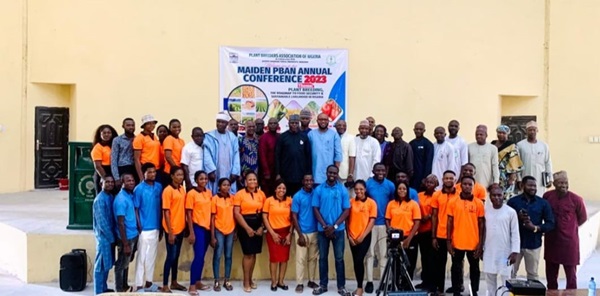
The director-general of the National Biotechnology Development Agency (NABDA), Prof. Abdullahi Mustapha has championed the crucial role of crop biofortification in the fight against malnutrition in Nigeria.
Addressing the Plant Breeders Association of Nigeria maiden annual conference in Benue State, Abdullahi underscored the significance of addressing nutrient deficiencies that contribute to malnutrition, affecting one in three people globally. He highlighted the widespread micronutrient deficiencies in Nigeria, with over 30 per cent of preschool children suffering from Vitamin A deficiency (VAD).
According to Abdullahi, malnutrition is a direct or underlying cause of 45 per cent of all deaths among children under 5 years old in Nigeria, making it the second-highest burden of stunted children globally.
The director-general introduced the concept of biofortification as a transformative approach to enhance the nutritional quality of food crops. Through precision breeding and modern biotechnology practices, biofortification offers sustainable opportunities to improve diets. Abdullahi emphasised that deficiencies or excesses in nutrient intake, imbalance of essential nutrients, or impaired nutrient utilisation could result in undernutrition and overnutrition.
“Biofortification provides a cost-effective, sustainable intervention, delivering micronutrients from farm to table at comparatively low costs. This agricultural process breeds higher mineral, vitamin and phytonutrient levels into foods that farmers already grow and consume regularly,” he explained.
Abdullahi emphasised that incorporating biofortified crops into regular diets, such as vitamin A sweet potato, high zinc rice, or iron-rich pearl millet, can address critical shortfalls in essential minerals and vitamins prevalent among resource-poor farming communities.
Encouraging Nigeria to harness the latent value of crop biofortification, Abdullahi called for a multi-stakeholder effort involving policy, research and private sector activities.
The conference also addressed broader issues related to plant breeding, biodiversity conservation, and climate change. Director-general of Sheda Science and Technology Complex, Prof. Paul Onyenekwe presented a report highlighting the significant alteration of land and marine environments by human actions, with nearly one million species at risk of extinction due to human activities.
In his welcome remarks, the president of the Plant Breeders Association of Nigeria (PBAN), Prof. Terkimbi Vange outlined the conference’s objectives, calling for networking and collaboration to facilitate research projects and address industrial challenges. He urged policymakers and governmental bodies to advocate for favourable policies and shape the future of plant breeding practices in Nigeria.
As the conference aimed to provide a platform for knowledge-sharing, discussions, and contributions to sector advancement, Vange encouraged individuals with postgraduate training in plant breeding to join hands in mentoring the next generation of students for sustainable food security in Nigeria.

